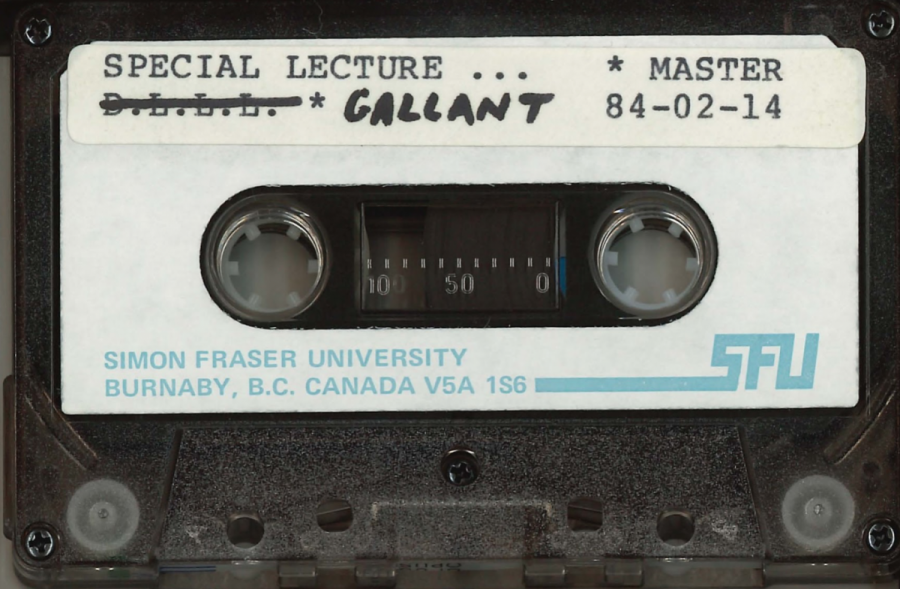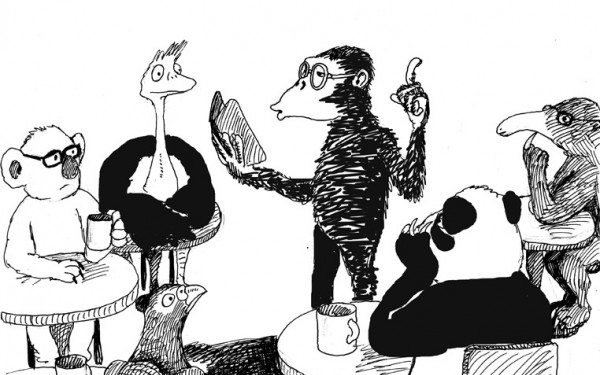From the mouths of authors: ‘SpokenWeb’ podcast examines archived literary recordings
The sound of literature is a gateway to understanding history, culture, and personal experiences
On Oct. 3, the SpokenWeb podcast launched its third season. In each episode, experts talk about how authors perform their works at live readings.
At live readings, authors lace their voices with frustration, hurt, elation, anticipation, or loathing. Speech and words meld, creating two conduits into the author's vision. A listener thus develops a strong connection with the story because they understand the speaker’s intent.
Judith Burr, the podcast’s supervising producer, wants to help listeners reflect on why writers write. Her team explores questions like: What feelings do authors and poets evoke when reading aloud? What social contexts do they respond to through their work? And what do their writings say about their place in society?
“The podcast is a platform for [researchers] to dive deep into archival clips of poetry and book readings,” said Burr.
Those who work for SpokenWeb believe literature is a gateway into understanding history, culture, and personal experiences.
“We try to present the stories from different perspectives," said Katherine McLeod, a SpokenWeb producer. "There are so many stories surrounding oral literature and we try our best to make sense of it all."
Read more: Montreal artist Julian Peters turns classic poetry into graphic art
Read more: ‘King Lear: The Podcast Series,’ a twist on traditional theater, released this month
“There are so many stories surrounding oral literature and we try our best to make sense of it all.” — Katherine McLeod
SpokenWeb's most recent episode is about Elizabeth Smart. She is the author of By Grand Central Station I Sat Down and Wept (1945). The semi-autobiographical novel follows a woman who has an affair with a married man. It is an homage to a love so passionate that it breeds destruction.
Myra Bloom, an English professor at York University, is a feature speaker in this episode. She expresses her love for Smart’s book, citing it as a reason for her pursuits in literary studies.
"[I] had this image in [my] mind of Elizabeth Smart as this passionate, young, beautiful, intense, almost tragic heroine,” Bloom said in the episode.
But once she listened to the author’s poetry reading from the early 1980s, Smart transformed into an old, tired and sad woman, disillusioned with love.
“[She] smoked a lot and drank a lot and led a […] bohemian life. You can hear that in the grain of her voice,” said Bloom.

Without the recording of her live reading, the York professor would not have understood who Smart was in her later years. By Grand Central Station immortalizes her younger self, but her older self exists only in tape recordings.
An earlier episode focuses on lesbians in film from 1960 to 1990. In this episode, researcher Mathieu Aubin contextualize the gay liberation movement based on how lesbian characters sound in film through the ages.
Aubin works at Concordia University where he analyzes queerness in LGBTQA+ spoken literature events. Aubin also researches the relationship between independent printing presses and gay liberation. His goal is to understand how poetry and spoken words advanced the movement.
“The questions and issues raised [in queer circles] 40 years ago are still raised today,” he said. “What do we do with inner conflict within our communities? Who’s accepted? Who’s not accepted?”
So, Aubin studies old poetry, book, and essay readings to encourage understanding between generations of queer people.
“[Right now I am] resurfacing recordings of gay and lesbian literary events from the 80s—some from Vancouver and some from Montreal,” said Aubin.
The inflections of a poet’s voice and the sounds that an audience makes help explain the cultural context of a piece. In this case, sound tells the story of a disenfranchised group that struggled to find its voice.




_600_375_s_c1.png)

1__600_375_90_s_c1.jpg)
